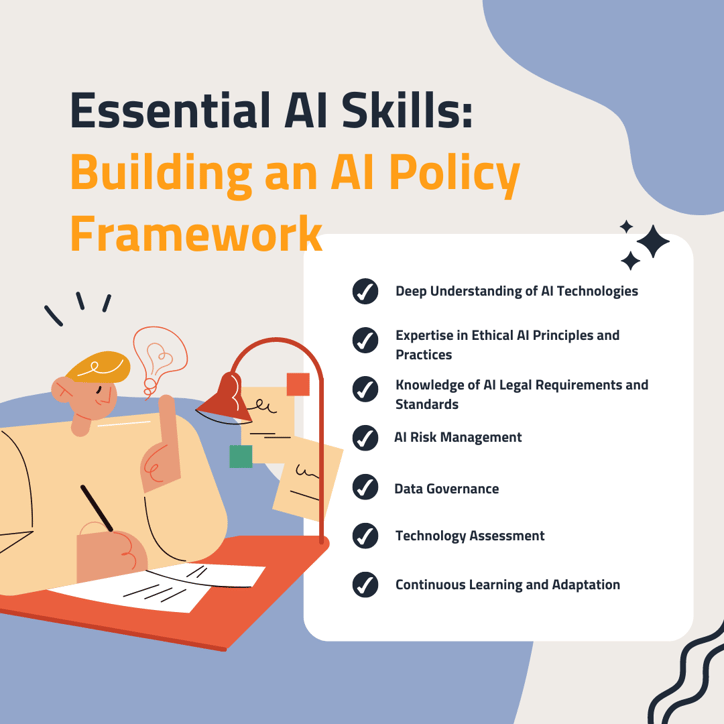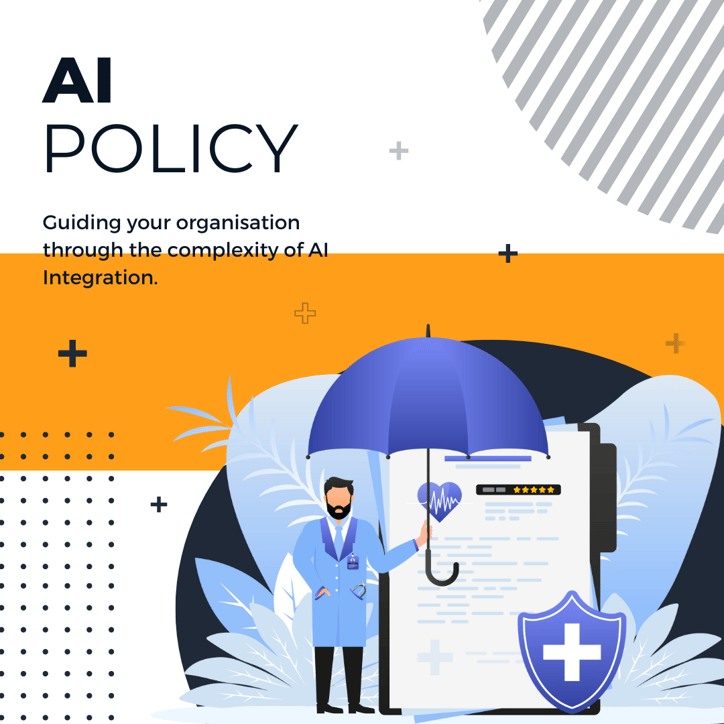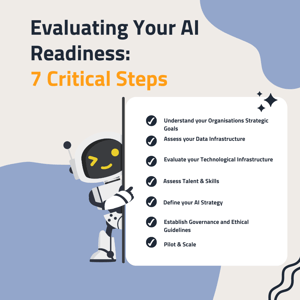The Imperative of a Skilled AI Integration Workforce
In the wake of a transformative digital era, the integration of Artificial Intelligence (AI) into business processes is no longer a futuristic vision—it's a present-day imperative. The recently published "Generative AI in Ireland 2024" report by Microsoft and Trinity College Dublin’s Business School, while a profound source of insights on AI adoption across Ireland, serves as a beacon, highlighting the rapid embrace of generative AI. Yet, beneath the surface of this technological advancement lies a critical challenge that enterprises must navigate: the risk associated with insufficient AI skills within their organisation.

Our perspective on the integration of AI into business operations is grounded in the belief that AI is not just a tool for innovation but a strategic asset that requires a robust foundation of skills and knowledge to leverage effectively.
The report underscores a significant trend—that nearly half of the organisations surveyed have begun to integrate generative AI into their operations, signifying a shift towards more innovative, AI-driven business models. However, the enthusiasm for AI adoption contrasts starkly with the readiness of organisations to manage and deploy these technologies effectively, especially when it comes to the skills required to mitigate the inherent risks of AI integration.
The reality is that the integration of AI, particularly in its generative form, is fraught with complexities and challenges. The allure of enhanced productivity and innovation potential is undeniable. Yet, without a workforce that is adequately skilled in AI technologies, organisations expose themselves to a myriad of risks ranging from data privacy breaches to ethical dilemmas and operational inefficiencies.
Moreover, the report’s insights into the emergence of AI policy adoption and the shadow generative AI culture within organisations serve as a reminder of the need for a strategic approach to AI integration. Establishing robust AI governance frameworks that align with business objectives and ethical standards is essential – frameworks that include developing policies that not only encourage the responsible use of AI but also ensure that the AI initiatives are underpinned by a strong foundation of skilled professionals to support.

At OpenSky, we advocate for a strategic approach to AI integration—one that places a premium on developing and nurturing AI competencies within the organisation. The digital transformation journey is not solely about adopting new technologies but also about fostering a culture of continuous learning and innovation. This involves investing in comprehensive training programs, fostering partnerships with academic institutions, and creating a conducive environment for knowledge exchange and skill development.


